Tales from the Cut-Out Bin: The Rutles "Archaeology" (1996)
The pre-fab four return....for a bit longer than a lunchtime.
Welcome to another edition of Tales From The Cut-Out Bin, where I look at albums that languished in record shop bins, waiting for their chance to shine and rediscovered by curious listeners. Any if any album warrants a rediscovery, it’s the Rutles 1996 opus Archaeology. To borrow the title of another album in the classic Rutles cannon, the tale behind, during and after Archaeology’s release is truly a Tragical History Tour.
But let’s start at the beginning, for it’s as good a place as any to begin. Back in 1975, comedian Eric Idle was reeling off the worldwide success of Monty Python’s Flying Circus. With the troupe deciding to take a hiatus upon the conclusion of their BBC television series, Idle came up with the idea for creating a new television series based around the tiny village of Rutland and their fledgling television network. The result was Rutland Weekend Television, a curious look in the world of Rutland and the myriad characters that inhabited it.
When working on the concept, Idle rang up longtime friend, songwriter and musician Neil Innes, to see if he would be interested in writing the songs/music for the new program, as well as contributing to sketches. Innes and Idle’s relationship went back to the mid-1960s when they met on the set of Do Not Adjust Your Set. DNAYS (as it’s commonly abbreviated) was a pioneering television programme; conceived as a children's daytime show by Humphrey Barclay, the weekly show mixed absurdist and silly humor by Idle, Terry Jones and Michael Palin, along with regular musical intros (and outros) from the Bonzo Dog Doo Dah Band, of which Innes was a key member. What should have been just daytime kids fare, under this group became something more subversive and strange; John Cleese has said in interviews about how him and other adults were regularly rushing home from work to catch this odd little show.
It was through mixing on the set of DNAYS that Innes and Jones, Palin and Idle became friends, and the three comedians and writers have mentioned that the anarchic and Dada spirit of the Bonzos influenced their comedy development and those influenced carried over to the fledgling Monty Python troupe. After the Bonzos disbanded in early 1970, Innes focused on a solo career while Idle joined up with Palin, Jones, John Cleese, Graham Chapman and Terry Gilliam to form Monty Python’s Flying Circus. After member Cleese left the group upon the conclusion of the third TV series (season), Neil Innes was brought in as a writer, contributing to the fourth and final series of Monty Python’s Flying Circus.
Back to 1975, and Eric Idle and Neil Innes were working on Rutland Weekend Television, when they came up with the idea for the Rutles. While the concept of the group would lead to confusion decades later, Neil Innes never wavered in his telling of the Rutles history, in so much that Eric Idle came up with the idea for The Rutles name and they jointly collaborated on the idea of a pre-Fab Four beat group from Rutland, while Innes wrote a Beatle-like pastiche of a tune, I Must Be In Love, for a RWT sketch featuring a clip from the (supposed) film A Hard Day’s Rut. For the band’s television debut, the Rutles consisted of Idle, Innes, drummer John Halsey (who was a member of RWT studio band Fatso and a longtime Innes collaborator), and actor John Battley. While some likely enjoyed it, the sketch was just another segment in RWT, and little else was thought of it from the cast and crew after the segment aired.
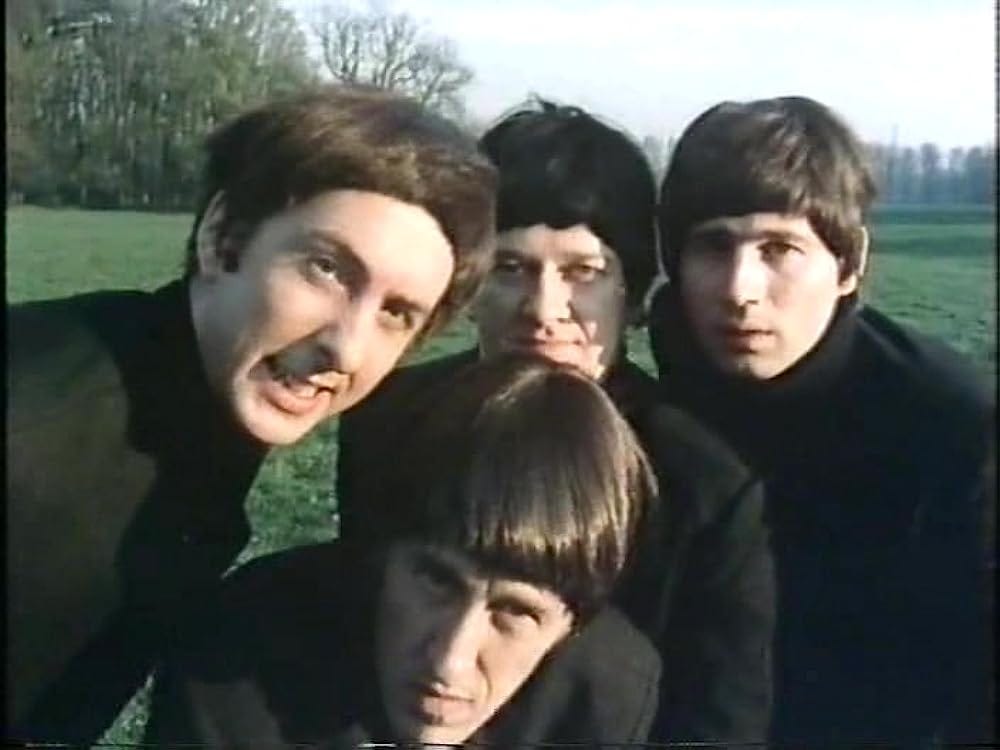
It wasn’t until the next year when, during his hosting of Saturday Night Live, Idle was asked to bring the Beatles to the program, as producer Lorne Michaels had been trying to reunite the group through on-air offers. Seemingly mishearing him, Idle instead brought along a clip of the Rutles instead….not that audiences minded! In fact, the audience response was reportedly remarkable, with thousands of viewers sending in letters asking who the Rutles were. Sensing interest, Michaels asked Idle if the concept could be expanded to a full TV special, which he was open to. The only hinge was, could Innes write enough Rutles songs? Not just snappy tunes, but enough songs to tell the group’s story and musical progression? Taking up the challenge, he bunkered down in the English winter of 1977 and, within a period of weeks(!), composed the twenty songs that made up the All You Need Is Cash special, which aired on NBC on March 22nd, 1978.
For all the early interest in the Rutles, the special bombed upon its TV debut, ranking as the lowest rated program of the week. The same couldn’t be said for the Rutles’ album, which Warner Bros. released later that year, and it sold relatively well - it was even nominated for a Grammy! It was the success of the album that started problems between Idle and Innes, for Idle, not one known for collaborating with others (out of all the Pythons, he always wrote alone), felt the need to take sole credit for the Rutles concept, and has cast Innes as a friend he hired to write some songs for the project. Whereas Innes always stuck to the same story of Eric and himself collaborating on the project, while Innes did indeed control the musical end of things, bringing along John Halsey on drums and Ollie Halsall on guitar. While Halsall ultimately didn’t play the Dirk McQuickly part (Idle got the role), it’s his singing and guitar playing heard throughout the entire film, and on the record. It’s no secret amongst Rutles fans that Halsall, a dynamic talent in his own right, was the spark that brought the Rutles sound together. But it would be this lack of involvement on the musical side that rubbed Idle the wrong way.
By the 1990s, the Beatles were back in the news again when Harrison, McCartney and Starr reunited to record new songs and interviews for their Anthology project. Innes had always had a close friendship with George Harrison (who, incidentally, made a cameo as a reporter in All You Need is Cash). One day whilst talking, Neil asked George if the time was right to bring back the Rutles; as Innes recounted, Harrison told him that it was all ‘part of the soup’, meaning that the Beatles and Rutles were both beloved by the same fans, and he saw no reason why Innes and co. shouldn’t reunite. With fellow Rutles Ricky Fataar and John Halsey on board, the Rutles reconvened to record a new studio album. Sadly, original Rutle Ollie Halsall had died several years prior, though much like the Beatles had taken Lennon’s demos and added their vocals, Innes was able to use several seventies studio demos featuring Halsall’s guitar, and rework them into new Rutles songs.
With the album finished, the project, dubbed Archaeology, was set for release. Innes had reached out to Idle early on when the project began, to see if he wanted to direct the music video or be involved; he declined involvement, reportedly because he couldn’t see any Rutles project not involving himself to be a substantial success. Apparently Idle forgot that when it comes to the Rutles, the fans genuinely love the music and songs of Innes, and knew that he was the man behind the Rutles music. While the All You Need is Cash special is hilarious and well-loved, it wouldn’t have existed without the songs written by Innes, and performed by him, Fataar, Halsall and Halsey. As much as I love the TV special, I listen to the Rutles music far more often than I watch the special (plus, I generally find it’s more enjoyable to watch All You Need is Cash with like-minded friends, especially those who know the Beatles’ story and get the references!)
With a promotional campaign spearheaded by Innes friend Martin Lewis and a star-studded music video for single Shangri-La filmed, everyone was anticipating a smash record, not least Virgin Records, who had won the bidding war for the new Rutles album. Unfortunately, when noticing the publicity and success Innes was getting, Idle forced Lorne Michaels’ company Broadway Video to charge Innes’ for use of the Rutles’ name and forced Virgin to print in the booklet a disclaimer that the Rutles were the sole concept of Eric Idle. Sadly, with the threat of legal action due to Idle’s complaints, Virgin Records, who had been previously excited about promoting a new Rutles album, ceased all promotion and left the album to die a slow death in the cut-out bins. A shame, since it’s nothing short of a Rutles masterpiece.
From catchy opener Major Happy’s Up-and-Coming Once Upon a Good Time Band, the album proceeds with one brilliant Innes-penned tune after another, leading into the charming (and funny) Rendezvous, which leads into the old Innes tune Questionnaire. It’s important to note that, while not all the songs on the album were newly penned for the project, they manage to fit together nicely, and while listening to the album, I’m reminded of the Andy Partridge quote regarding XTC’s Skylarking album, of how it sounds ‘like a Summer’s day baked into a cake’. But before we can get too wistful, the Rutles demand our attention by informing listeners that We’ve Arrived (And To Prove It We’re Here), a joyously rockin’ tune that you can’t help but sing along at the top of your lungs to. Listening to it is like getting a birds-eye view into a Rutles session; you can feel the joy and fun of what it must’ve been like working with Neil and Ollie and the guys.
The album continues with a host of catchy, clever tunes, not least of which is Unfinished Words, in which Innes manages to not just fit in the titles of several Beatles fake unreleased song titles (a hoax conceived years earlier by none other than Martin Lewis, and one that’s been continually reprinted in books and articles since), but a dig at ex-Rutle Dirk with the lines (“I can’t pretend to be / someone who pretends to be / someone else / or so my pretend friend tells me”).
One of the highlights of Archaeology is the single Shangri-La. Recorded with a full orchestra (conducted by legendary arranger John Altman, whom also worked on the original ‘78 Rutles album), the track is a true tour-de-force, and a magnificent production. It’s no surprise to see why it was picked as the single to lead off the album (there even was a 10” single/EP released at the time to promote it). Innes had reworked at earlier 70s demos, adding new Beatles/Rutles references and lyrics, and even working in a little wink at the plagiarism lawsuit brought against Oasis for, ahem, ‘borrowing’ (fine, blatantly ripping off) the melody to Innes song How Sweet to Be an Idiot for their chart-topping tune Whatever.
Upon release, Archaeology sank to the cut-out bins, where it was left to be discovered by curious pop fans. It’s still quite easy to find these days; I picked up one of my copies at the Princeton Record Exchange some years back for no more than a few bucks. If you manage to stumble across a copy, do yourself a favour and pick it up and give it a listen, and perhaps you’ll be transported to Shangri-La.
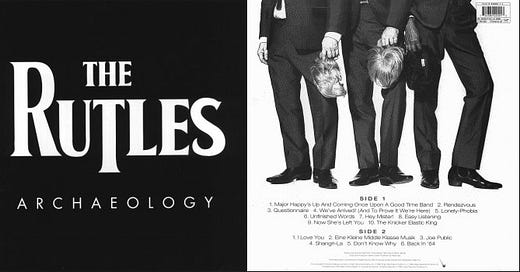



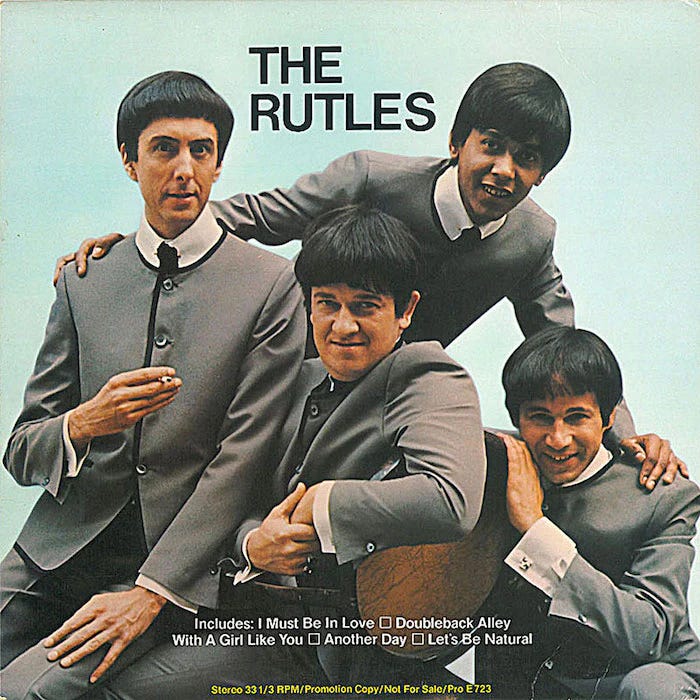
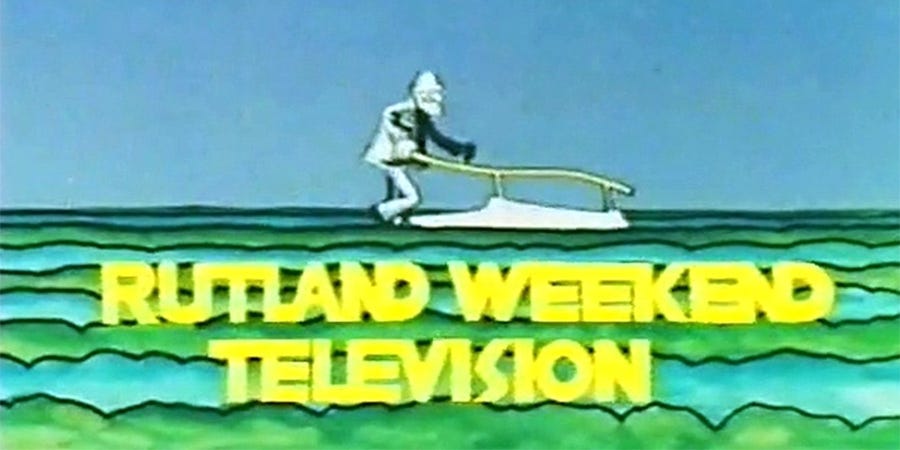
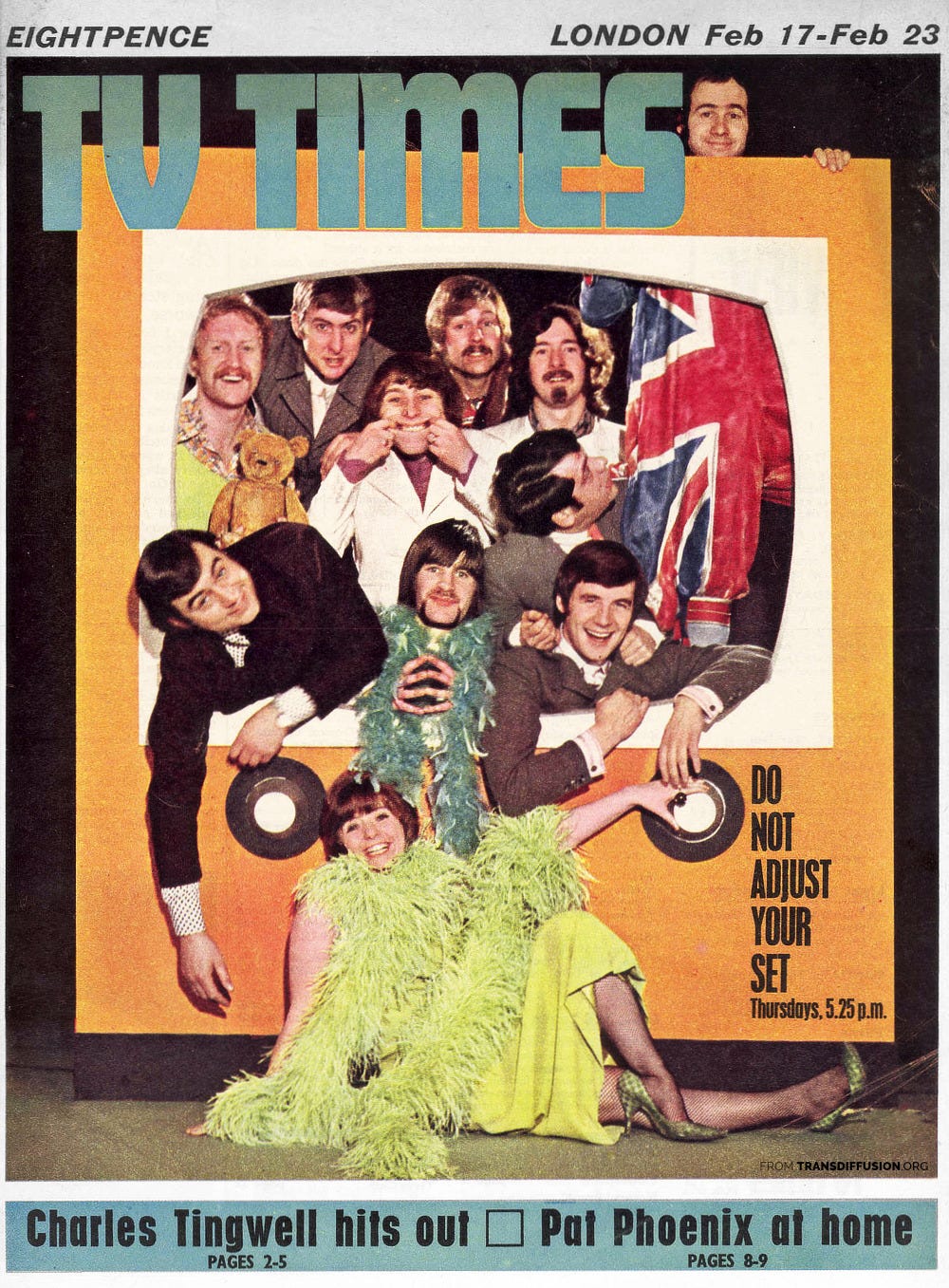



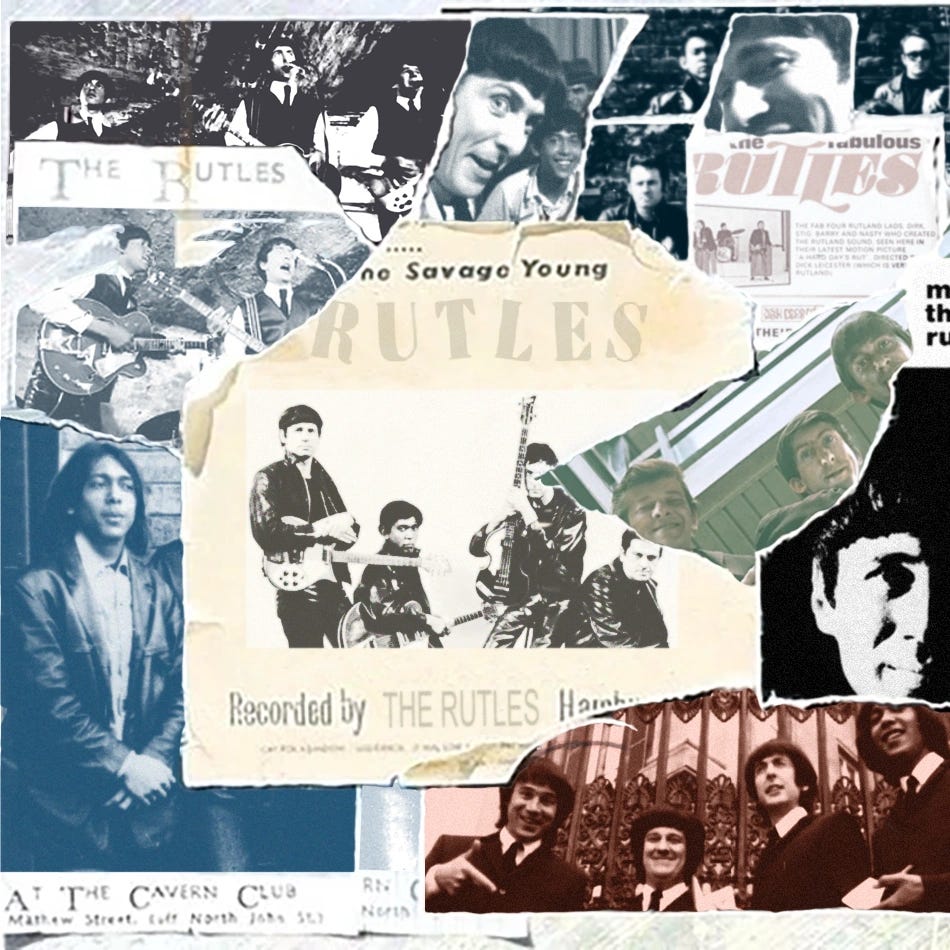

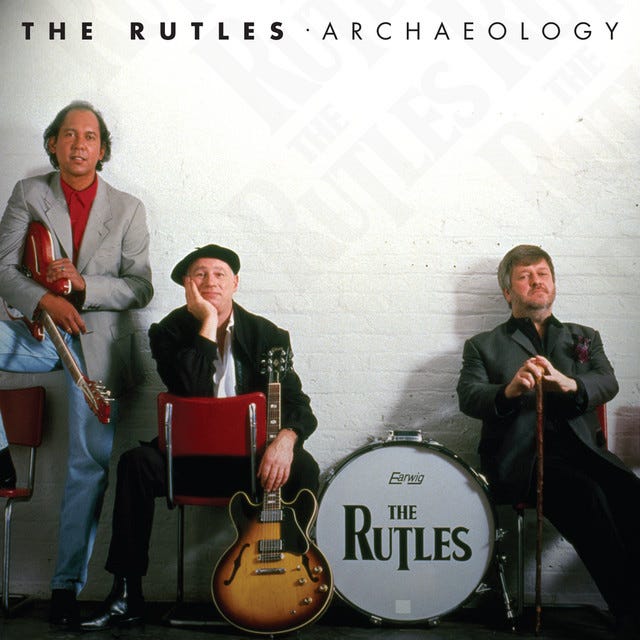

Nice piece. It's been ages since I listened to Archaeology, but I recall digging it quite a bit at the time — and, unfortunately, missing out on the band's LA gig (at the Troubadour, I think) following its release.
The first I learned of Idle's dismissive attitude towards Innes' musical contributions was when I checked out his commentary track on All You Need Is Cash, back when it was first reissued on DVD. He makes very little mention of the music at all on it, which I found both frustrating and totally point-missing; much as I love AYNIC, we wouldn't still be talking about it today if it weren't for Innes' spot-on music.
A really good article, I never realised the friction of Idle and Innes. I never got around to buying the albums, although I watched Rutland Weekend Television when it aired. On a side note - Rutland is sort of like Pluto (celestial body, not cartoon dog) in that it was an English county, and then it got assimilated into others at one stage, but now it is back to being Englands smallest county - except when the tide is out around the Isle of Wight, when it is the second smallest!